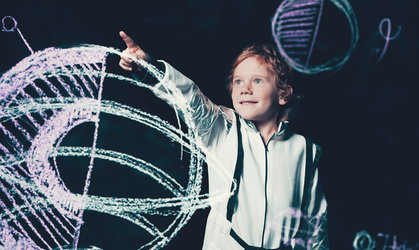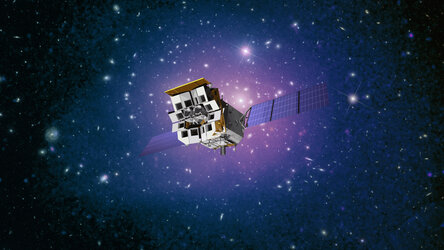Accept all cookies Accept only essential cookies See our Cookie Notice

About ESA
The European Space Agency (ESA) is Europe’s gateway to space. Its mission is to shape the development of Europe’s space capability and ensure that investment in space continues to deliver benefits to the citizens of Europe and the world.
Highlights
ESA - United space in Europe
This is ESA ESA facts Member States & Cooperating States Funding Director General Top management For Member State Delegations European vision European Space Policy ESA & EU Responsibility & Sustainability Annual Report Calendar of meetings Corporate newsEstablishments & sites
ESA Headquarters ESA ESTEC ESA ESOC ESA ESRIN ESA EAC ESA ESAC Europe's Spaceport ESA ESEC ESA ECSAT Brussels Office Washington OfficeWorking with ESA
Business with ESA ESA Commercialisation Gateway Law at ESA Careers Cyber resilience at ESA IT at ESA Newsroom Partnerships Merchandising Licence Education Open Space Innovation Platform Integrity and Reporting Administrative Tribunal Health and SafetyMore about ESA
History ESA Historical Archives Exhibitions Publications Art & Culture ESA Merchandise Kids Diversity ESA Brand Centre ESA ChampionsLatest
Space in Member States
Find out more about space activities in our 23 Member States, and understand how ESA works together with their national agencies, institutions and organisations.
Science & Exploration
Exploring our Solar System and unlocking the secrets of the Universe
Go to topicAstronauts
Missions
Juice Euclid Webb Solar Orbiter BepiColombo Gaia ExoMars Cheops Exoplanet missions More missionsActivities
International Space Station Orion service module Gateway Concordia Caves & Pangaea BenefitsLatest
Space Safety
Protecting life and infrastructure on Earth and in orbit
Go to topicAsteroids
Asteroids and Planetary Defence Asteroid danger explained Flyeye telescope: asteroid detection Hera mission: asteroid deflection Near-Earth Object Coordination CentreSpace junk
About space debris Space debris by the numbers Space Environment Report In space refuelling, refurbishing and removingSafety from space
Clean Space ecodesign Zero Debris Technologies Space for Earth Supporting Sustainable DevelopmentLatest
Applications
Using space to benefit citizens and meet future challenges on Earth
Go to topicObserving the Earth
Observing the Earth Future EO Copernicus Meteorology Space for our climate Satellite missionsCommercialisation
ESA Commercialisation Gateway Open Space Innovation Platform Business Incubation ESA Space SolutionsLatest
Enabling & Support
Making space accessible and developing the technologies for the future
Go to topicBuilding missions
Space Engineering and Technology Test centre Laboratories Concurrent Design Facility Preparing for the future Shaping the Future Discovery and Preparation Advanced Concepts TeamSpace transportation
Space Transportation Ariane Vega Space Rider Future space transportation Boost! Europe's Spaceport Launches from Europe's Spaceport from 2012Latest

Recherche et technologie en orbite
Thank you for liking
You have already liked this page, you can only like it once!
Recherche et technologie en orbite
Depuis 2008, le laboratoire européen Columbus permet aux chercheurs du monde entier de mener des expériences en l’absence de gravité, dans des domaines tels que la physique des fluides, la science des matériaux, la physique des rayonnements, la physiologie humaine, la biologie et l’astrobiologie.
Les astronautes de l’ESA ont pris part à des missions à bord de l’ISS depuis 2001, en y menant des tâches d’assemblage et en contribuant à des activités de recherche portant aussi bien sur la recherche fondamentale que sur des technologies de pointe et des produits commerciaux.
De nombreuses expériences étudient les effets de la gravité sur les processus biologiques, physiques et chimiques dans le but d’améliorer la vie quotidienne sur Terre.
Science and technology in orbit
Since 2008, Europe’s Columbus laboratory on the ISS offers researchers worldwide the opportunity to conduct science without the influence of gravity in fields such as fluid physics, material sciences, radiation physics, the human body, biology and astrobiology.
ESA astronauts have been flying to the International Space Station since 2001, carrying out assembly tasks and supporting research in areas ranging from fundamental science to advanced technology and commercial products.
Numerous experiments study the effect of gravity on biological, physical and chemical processes and how these could be used to improve daily life on Earth.
Image caption
L’astronaute de l’ESA Hans Schlegel pendant l’amarrage du laboratoire européen Colombus à l’ISS en 2008.
ESA astronaut Hans Schlegel during the docking of Europe’s Columbus laboratory to the ISS in 2008.
-
CREDIT
ESA/NASA -
LICENCE
ESA Standard Licence

Science and technology in orbit

Rendez-vous et amarrage du Crew Dragon

Hans Schlegel returning from the Columbus Mission

Hans Schlegel during walk out















 Germany
Germany
 Austria
Austria
 Belgium
Belgium
 Denmark
Denmark
 Spain
Spain
 Estonia
Estonia
 Finland
Finland
 France
France
 Greece
Greece
 Hungary
Hungary
 Ireland
Ireland
 Italy
Italy
 Luxembourg
Luxembourg
 Norway
Norway
 The Netherlands
The Netherlands
 Poland
Poland
 Portugal
Portugal
 Czechia
Czechia
 Romania
Romania
 United Kingdom
United Kingdom
 Slovenia
Slovenia
 Sweden
Sweden
 Switzerland
Switzerland
























